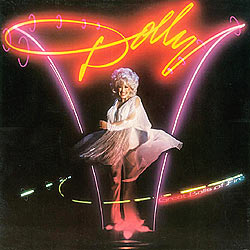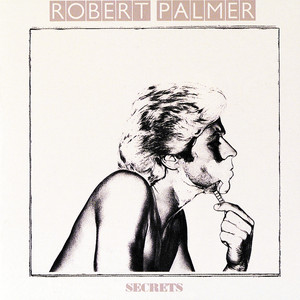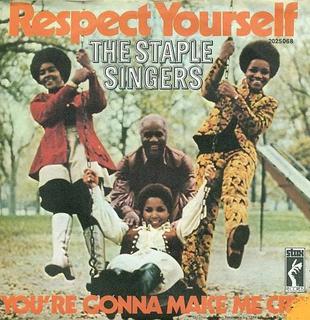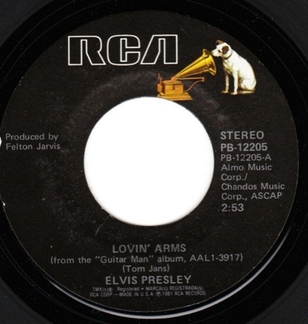
"Crazy Little Thing Called Love" is a song by the British rock band Queen. Written by Freddie Mercury in 1979, the track is included on their 1980 album The Game, and also appears on the band's compilation album Greatest Hits in 1981. The song peaked at number two in the UK Singles Chart in 1979, becoming the group's first number-one single on the Billboard Hot 100 in the US in 1980, remaining there for four consecutive weeks. It topped the Australian ARIA Charts for seven weeks. It was the band's final single release of the 1970s.

"Gimme Some Lovin'" is a song first recorded by the Spencer Davis Group. Released as a single in 1966, it reached the Top 10 of the record charts in several countries. Later, Rolling Stone included the song on its list of the 500 Greatest Songs.

"Baby I Need Your Loving" is a 1964 hit single recorded by the Four Tops for the Motown label. Written and produced by Motown's main production team Holland–Dozier–Holland, the song was the group's first Motown single and their first pop Top 20 hit, making it to number 11 on the US Billboard Hot 100 and number four in Canada in the fall of 1964. It was also their first million-selling hit single.

Dynasty is the seventh studio album by American rock band Kiss, produced by Vini Poncia and released on May 23, 1979, by Casablanca Records.

"You've Lost That Lovin' Feelin'" is a song by Phil Spector, Barry Mann, and Cynthia Weil, first recorded in 1964 by the American vocal duo the Righteous Brothers. This version, produced by Spector, is cited by some music critics as the ultimate expression and illustration of his Wall of Sound recording technique. The record was a critical and commercial success on its release, reaching number one in early February 1965 in both the United States and the United Kingdom. The single ranked No. 5 in Billboard's year-end Top 100 of 1965 Hot 100 hits – based on combined airplay and sales, and not including three charted weeks in December 1964 – and has entered the UK Top Ten on an unprecedented three occasions.

"I Was Made for Lovin' You" is a song by American hard rock band Kiss, originally released on their 1979 album, Dynasty. It was released as the A-side of their first single from the album, with "Hard Times" as the B-side.

American singer Michael Jackson released 67 singles as a lead artist, and 10 as a featured artist. One of the best-selling artists of all time, his album and single sales as of 2013 stood at 400 million. In the United States, Jackson amassed 13 Billboard Hot 100 number-one singles and was the first artist to have a top-ten single in the Billboard Hot 100 in five different decades. In 2012, Jackson was ranked the fifth best selling singles artist in the United Kingdom with 15.3 million singles sold.
John David "Moon" Martin was an American singer-songwriter and guitarist.

"The Loco-Motion" is a 1962 pop song written by American songwriters Gerry Goffin and Carole King. "The Loco-Motion" was originally written for R&B singer Dee Dee Sharp, but Sharp turned the song down.

Great Balls of Fire is the twenty-first solo studio album by American singer-songwriter Dolly Parton. It was released on May 28, 1979, by RCA Victor. The album was produced by Dean Parks and Gregg Perry with Parton and Charles Koppelman serving as executive producers. The album peaked at number four on the Billboard Top Country Albums chart and number 40 on the Billboard 200. Two of the album's four singles charted in the top ten of the Billboard Hot Country Songs chart. "You're the Only One" topped the chart, while "Sweet Summer Lovin'" peaked at number seven. The album has been certified Gold in the United States.
"I Don't Want to Talk About It" is a song written by American guitarist Danny Whitten. It was first recorded by American rock band Crazy Horse and issued as the final track on side one of their 1971 eponymous album. It was Whitten's signature tune, but gained more fame via its numerous cover versions, especially that by Rod Stewart. Cash Box magazine has described it as "a magnificent ballad outing."

"Lovin' You" is a song recorded by American singer Minnie Riperton from her second studio album, Perfect Angel (1974). It was written by Riperton and her husband, Richard Rudolph, produced by Rudolph and Stevie Wonder, and released as the album's fourth single on January 18, 1975. The song peaked at number one on the US Billboard Hot 100 on April 5, 1975. Additionally, it reached number two on the UK Singles chart, and number three on the Billboard R&B chart. In the US, it ranked number 13 on the Billboard Year-End Hot 100 singles of 1975.

Double Fun is the fourth solo album by Robert Palmer, released in 1978. Self-produced, this pop album is influenced by multiple genres including blue-eyed soul, disco and heavy rock but maintains an overall consistency of production which holds it all together. The album peaked at number 45 on the Billboard Pop Albums chart in 1978, his highest rank up to that point, and includes a top 20 hit, "Every Kinda People".

Secrets is the fifth solo album by Robert Palmer, released in 1979. It includes "Bad Case of Loving You " which peaked at No. 14 on the US Billboard Hot 100 chart in 1979, and a remake of the Todd Rundgren song "Can We Still Be Friends", which peaked at No. 52 in 1980. The album peaked at No. 19 on the Billboard 200 and No. 54 in the UK Albums Chart in 1979. Palmer also scored a hit single with "Jealous" which rose to No. 31 in Canada.

"Two Out of Three Ain't Bad" is a power ballad performed by the American musician Meat Loaf. It is a track off his 1977 album Bat Out of Hell, written by Jim Steinman. It spent 23 weeks on the Billboard Hot 100, peaking at #11, and earned a million-selling Gold single from the RIAA, eventually being certified platinum. It remains his second-highest charting hit in the US, behind "I'd Do Anything for Love " (1993), and stands as one of his career signature tunes.

"Can't Stop Lovin' You" is a song by American band Van Halen. It was released in March 1995 as the third single from their 10th album, Balance (1995). The song emerged after producer Bruce Fairbairn asked for a more pop-oriented song. Instead of searching for his archives, Eddie Van Halen decided to write new music from scratch. The song was written by all members of Van Halen and pays homage to Ray Charles' song "I Can't Stop Loving You", particularly in the line where Sammy Hagar sings "Hey Ray, what you said is true..."

"Respect Yourself" is a song by American R&B/gospel group the Staple Singers. Released in late 1971 from their album Be Altitude: Respect Yourself, the song became a crossover hit. The Staple Singers' version peaked at No. 12 on the Hot 100, No. 2 on the Hot Soul Singles chart, and is one of the group's most recognizable hits. In 2002, the song was inducted into the Grammy Hall of Fame, and in 2010 it was ranked #468 on the Rolling Stone list of the 500 Greatest Songs of All Time, moving down 4 spots from #464 in 2004.
"Lovin' Her Was Easier " is a song written, composed, first recorded, and first released by Kris Kristofferson. It was also recorded and released by Roger Miller, who included it on his album The Best of Roger Miller and released it as a single in July 1971. Ten years later, it was recorded by Tompall & the Glaser Brothers for the album Lovin' Her Was Easier.
The discography of Robert Palmer consists of 14 studio albums, three live albums and 12 compilation albums. For the discographies of Vinegar Joe and the Power Station, see their respective pages.

"Loving Arms" is a song written by Tom Jans and first recorded as a duet by Kris Kristofferson and Rita Coolidge for their 1973 album Full Moon.
















